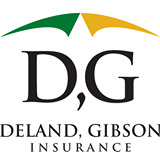As we enter the peak months of wedding season, it’s a fitting time to bring up the topic of wedding insurance. As we all know, weddings are incredible events that bring together friends and family for an unforgettable day celebrating love and commitment. However, these special events cannot happen without a tremendous amount of planning, preparation, and oftentimes a substantial cost. From reserving the venue, organizing the caterer, the band, the ceremony, flowers, and countless other details, the list quickly stacks up and with it inevitably the risk that something may go awry – you can see where we are going with this right? A quick look back in recent history and you will find countless weddings being canceled or delayed because of external factors that impacted the big day. So how do you mitigate the financial risks of planning a wedding and all the costs associated with it? Well, this is where wedding insurance comes in.
In this article, we are going to break down wedding insurance, what it is, how it works, and how you can incorporate it into the planning of your big day. So, let’s dive in.
What Is Wedding Insurance?
So, what is wedding insurance? Well, quite simply, wedding insurance is event insurance that is designed to help mitigate the risks associated with hosting a large event. With so many moving parts, weddings typically have a large financial cost attached to them, and cancellation or delay could leave you financially liable. Does the weather not cooperate and now you are forced to delay? Well, this could have a cost – canceled flights, changes in hotel bookings, and so on. And this is where wedding insurance can help protect you.
On your wedding day, the last thing that you want to worry about is external circumstances getting in the way. It is impossible to foresee illnesses, severe weather, or vendor issues that could impact your wedding. Unfortunately, these factors are out of your control, and very common. In 2021, 29% of Travelers’ wedding claims were due to vendor issues, and 18% were due to illnesses. Not everything goes as planned when it comes to weddings, and we want to help keep your investments safe.

Wedding insurance doesn’t just help protect you against costs associated with the event, it also can help protect you against risks at the event itself including damages to the venue, injuries sustained (maybe some over-enthusiastic dancing), and damaged clothing that was rented, and more. Many people wonder if they are liable for overserving alcoholic beverages to guests at their wedding. If you hire a bartender or a caterer with a bartender, make sure they have their own liquor liability policy to protect them and you. Being prepared by having wedding insurance can alleviate costs that come with injured guests. You never want to imagine that a mishap could occur at your event, but it happens more than you would think. In fact, 19% of Travelers’ wedding insurance claims were due to accidents or property damage. You may not be able to prevent these accidents from occurring, but you can be prepared by buying wedding insurance.
What Does Wedding Insurance Cover?
Wedding insurance protects you from both event cancellation and event liability costs. Wedding cancellation coverage can protect your funds if your event needs to be canceled or postponed due to inclement weather, illness, military deployment, vendor issues, etc. Event liability coverage will pay out if you or your guests are liable for any property damages or bodily injury claims. So, with these two types of coverages working hand in hand, wedding insurance protects you from all sorts of potential setbacks that can leave you financially liable.
Does Homeowners Insurance Cover Weddings?
A question we are often asked at Deland, Gibson Insurance is whether or not a homeowners policy will cover events, such as weddings, and whether or not this is sufficient. The simple answer is no. Many times, homeowners policies do not provide special event coverage, and if they do it is often very limited. It is more practical to buy wedding insurance to make sure that all of the risks are covered on your special day.
Buying Wedding Insurance
Ideally, you should purchase wedding insurance as early as possible in your wedding planning process, particularly once you start making financial commitments. This ensures that you’re covered in case any unexpected events occur during the planning stages or on the day of the wedding itself. Some vendors may require proof of insurance before finalizing contracts, so it’s beneficial to have it in place early on. Additionally, purchasing wedding insurance well in advance allows you to explore different coverage options, understand policy details, and tailor the insurance to suit your specific needs. Remember, the sooner you buy wedding insurance, the more comprehensive protection you’ll have throughout your wedding journey.
How Much Does Wedding Insurance Cost?
Wedding insurance costs can vary depending on various factors such as the coverage limits, the location of the event, the number of guests, and any additional services included in the policy. Basic coverage plans may start as low as $100 to $200, offering protection against common risks like vendor no-shows or weather-related issues. However, as you opt for more extensive coverage or if you’re planning a high-end wedding with expensive elements, such as designer attire or elaborate decorations, the cost of insurance may increase accordingly. Talking through your wedding insurance needs with a DG expert can be very beneficial!
Where To Buy Wedding Insurance
At Deland, Gibson, we ask you the right questions to make sure your risks are covered with the correct insurance companies and liability amounts. Give us a call or fill out a form on our site and we are more than happy to work with you!
Providing Peace of Mind Through Proactive Service
Deland, Gibson: A Trusted Choice, Five Star Accredited independent insurance agency. Established in Massachusetts in 1900, Deland, Gibson is a 4th generation family-run insurance agency that has thrived working as a trusted advisor for its client base. We work with individuals and businesses to lower their Total Cost of Risk. We analyze a client’s direct and indirect costs and implement risk reduction plans to address areas of business, hazard, or strategic risk.


